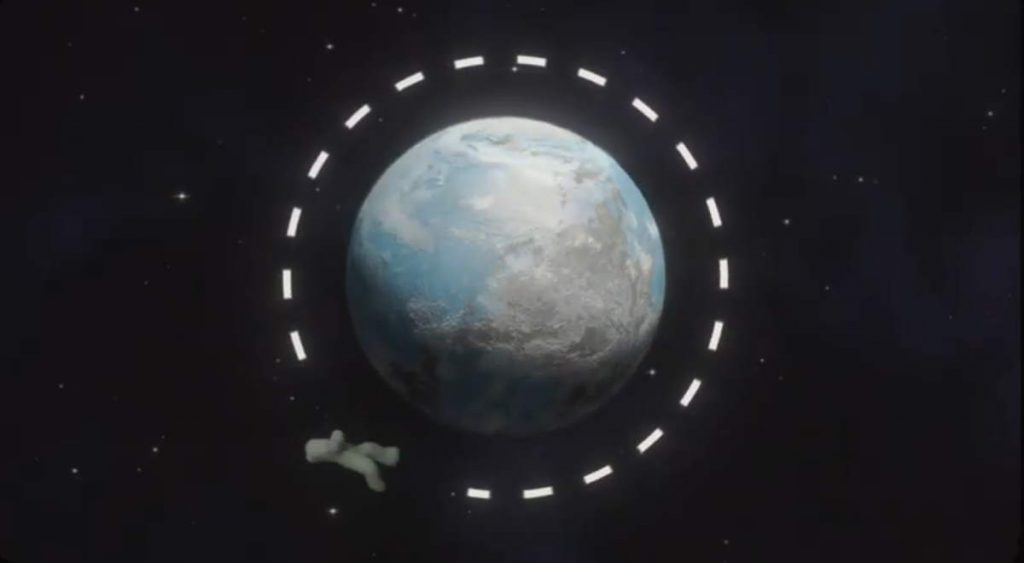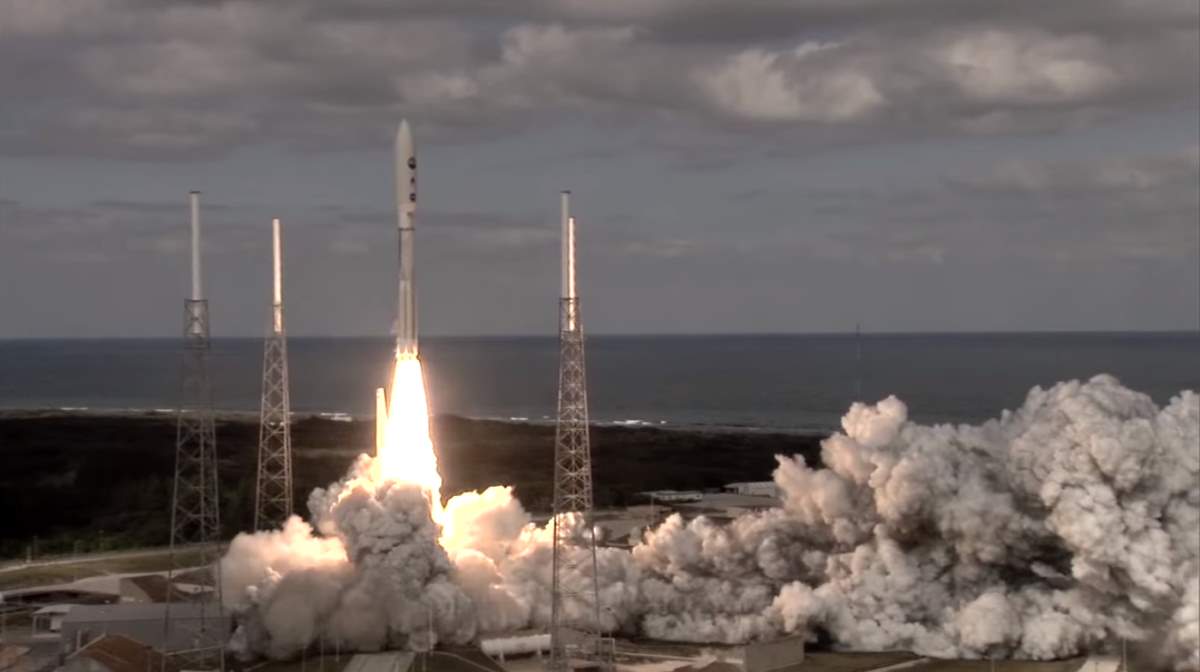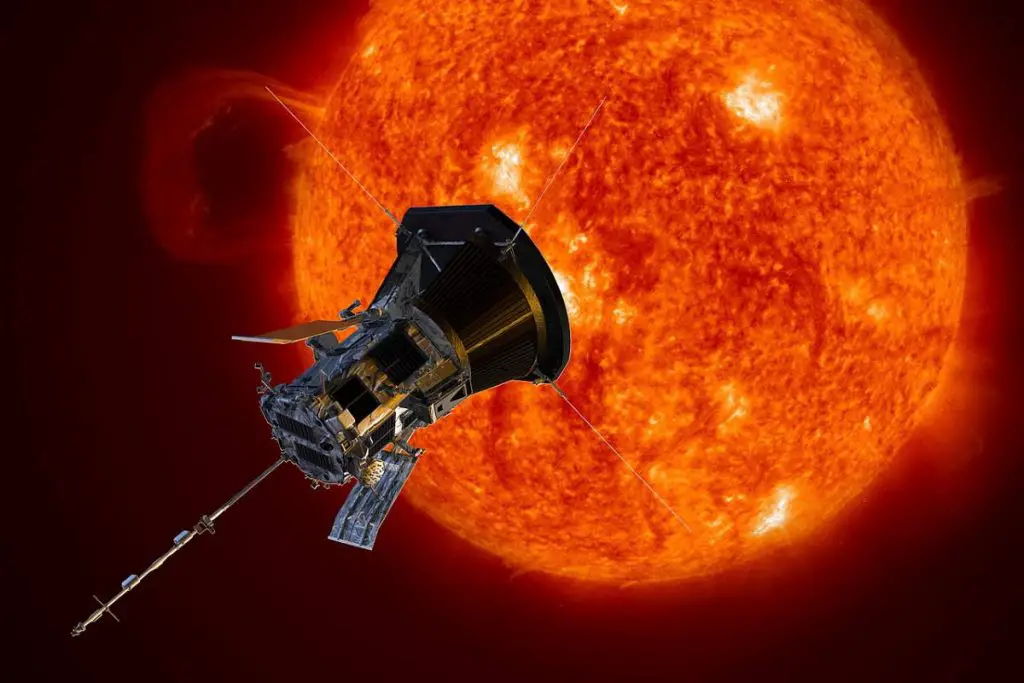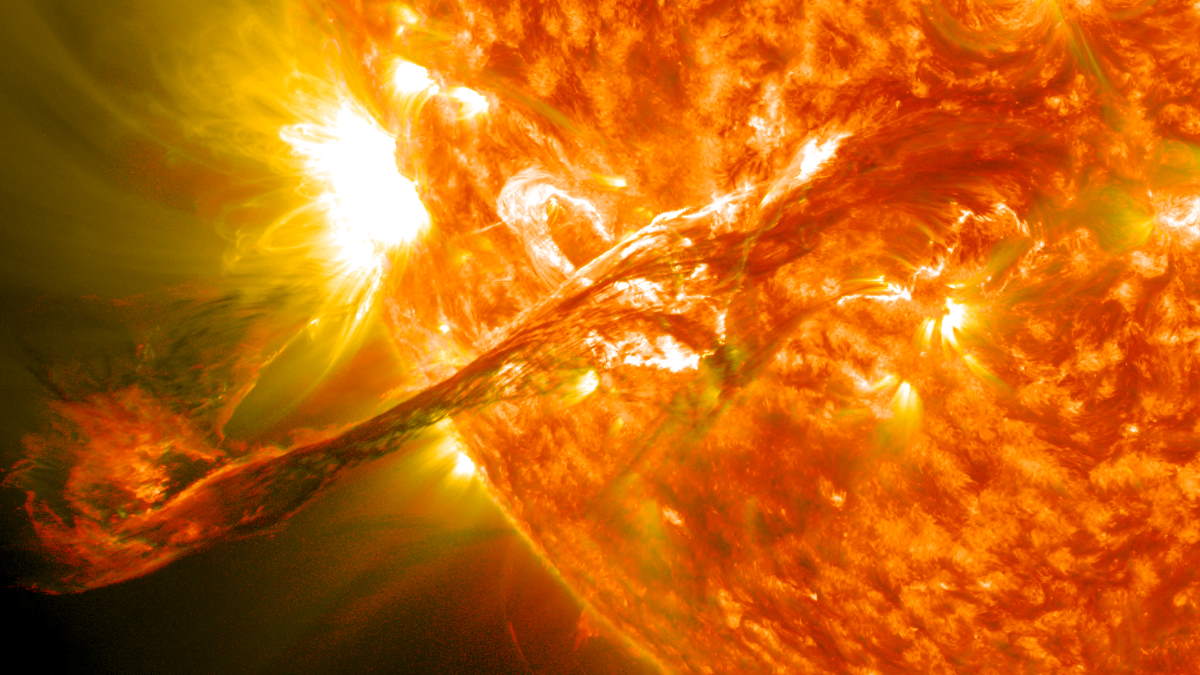The Earth is getting full of waste, pollution, and garbage. Yes, the world should focus on recycling and reducing waste, but, the truth is that it’s just not that easy, and in fact, we’re not doing well so far. So, why not shoot the Earth’s garbage into space, or even better, into the Sun?
Shooting garbage into space would be incredibly expensive
For starters, launching anything into space is no easy feat – it takes too much time and energy to get there, not to mention it costs a lot of money.
In fact, going to space is one thing – staying there is another. Space is surprisingly close – it starts at the Kármán line which lies at an altitude of 100 kilometers (62 mi) above the Earth’s sea level. Going to space is “relatively” easy, but, it’s really hard to stay there.
Staying in space (in other words staying in orbit) is more about speed than altitude. You have to increase the horizontal speed of the spacecraft to the point that as gravity pulls it curves into a circular orbit.
For example, to stay in Low Earth Orbit (LEO, see notes 1), you need to have a speed of about 7.8 kilometers per second (4.85 miles per second)! Or 28,000 km/h – 17,000 mph). Obviously, it takes so much energy.
For example, let’s assume we want to send 1000 kilograms (1 tonne) of garbage into Low Earth Orbit: just the kinetic energy of 1 ton of garbage at 7.8 km/h is a whopping 30,420,000,000,000 joules!
Add to this atmospheric drag and the weight of rockets, spacecraft, etc – you’ll see it’s not feasible. Not even close.
And leaving Low Earth Orbit and going into deep space requires even more energy.
That’s why we need huge rockets to go to space.

Related: What is an orbit?
Furthermore, we produce a crazy amount of garbage every single day.
An average American produces 2 kilograms of garbage per day. That’s 672 kilos per year. This isn’t including commercial or industrial waste.
The population of the United States today is about 292 million people. That means only U. S. is producing 196 billion kilograms of waste a year. So, we’d need hundreds of thousands of rocket launches (if not millions) every day.
Furthermore, by building that many rockets and sending them into space or into the Sun (and losing them forever) we’d consume precious metals very quickly.
Rockets release greenhouse gases
What’s more, rockets emit 100 times more CO₂ per kg than plane flights – which means we’d warm (and pollute) our planet even more while we’re trying to “clean” it.
Rockets can fail. Catastrophically.
The American rocket engineer and rocket engine designer (and one of the founders of SpaceX) Tom Mueller once said:
“There are a thousand things that can happen when you go light a rocket engine, and only one of them is good”.
Yes, rockets fail so often and catastrophically.
Because they are designed to be as light as conceivably possible, yet retain their structural integrity against the expected payloads, combined with the fact that they are filled with stuff that burns rapidly with itself.
All it takes is for the vehicle to go a little bit in the wrong direction, presenting large aerodynamic loads to the side of the vehicle where it’s not designed to take those loads, resulting in a dramatic breakup and explosion.
Rocket engines also operate on the edge of what is possible for our technology thus any anomaly can be catastrophic.
Usually, in engineering, we have margins for errors (e.g. making a bridge being able to hold 1.5 times of possible maximum load). But in rockets, you can’t have large margins, because every extra gram of the rocket would be subtracted from the payload.
Think of a rocket failure: all the garbage we were trying to send into deep space would fall back to Earth. To make things worse, if our “garbage” is radioactive or hazardous, all of that dangerous waste would be uncontrollably distributed across the planet, polluting the environment.
Congratulations, we had one problem, now we have thousands of problems.

Why into the Sun?
Did you know that the Sun is the most difficult place to get in the solar system? It’s even easier to leave the Solar System than to reach the Sun.
Why is it so difficult? The answer lies in the same fact that keeps Earth from plunging into the Sun: our planet is traveling very fast – about 67,000 miles per hour (108,000 km/h) – almost entirely sideways relative to the Sun. The only way to get to the Sun is to cancel that sideways motion.
Δv (delta-v) is a measure of the impulse that is needed to perform a maneuver such as launching from, or landing on a planet or moon (or an asteroid, of course), or an in-space orbital maneuver. The bigger an object’s delta-v is, the more thrust is required to get there.
A delta-v budget is an estimate of the total change in velocity (delta-v) required for a space mission.
The Δv to enter orbit around Sun from Earth’s orbit is a whopping 29.8. Compare that number (29.8) to the Δv to go to Saturn (10.3), to Pluto (11.6), or to infinity (interstellar space, out of the solar system, 12.3).
It would be even easier to throw our garbage out of Solar System than to shoot it into the Sun.

Image: Artistic rendition of the Parker Solar Probe – The fastest human-made object ever built
Notes
- A low Earth orbit (LEO) is an Earth-centered orbit with an altitude of 2,000 kilometers (1,200 miles) or less (approximately one-third of the radius of Earth), or with at least 11.25 periods per day (an orbital period of 128 minutes or less).
Sources
- What’s So Special About Low Earth Orbit? on the Wired website
- “Orbits explained: Space is surprisingly close, but it’s really hard to stay there” on the CNet website
- “Space tourism: rockets emit 100 times more CO₂ per passenger than flights – imagine a whole industry” on The Conversation
- “Why does the world store nuclear waste and not just shoot it into the Sun or deep space?” on The Conversation
- Mark Adler’s answer to the question of “Why do rockets fail so often and catastrophically?” on Quora
- Dmitrii Medvedev’s answer to the question of “Why do rockets fail so often and catastrophically?” on Quora
- “This Is Why We Don’t Shoot Earth’s Garbage Into The Sun” by Ethan Siegel on The Forbes
- Moon Landings: All-Time List [1966-2025] - February 2, 2025
- What Is Max-Q and Why Is It Important During Rocket Launches? - January 16, 2025
- Top 10 Tallest Rockets Ever Launched [2025 Update] - January 16, 2025
